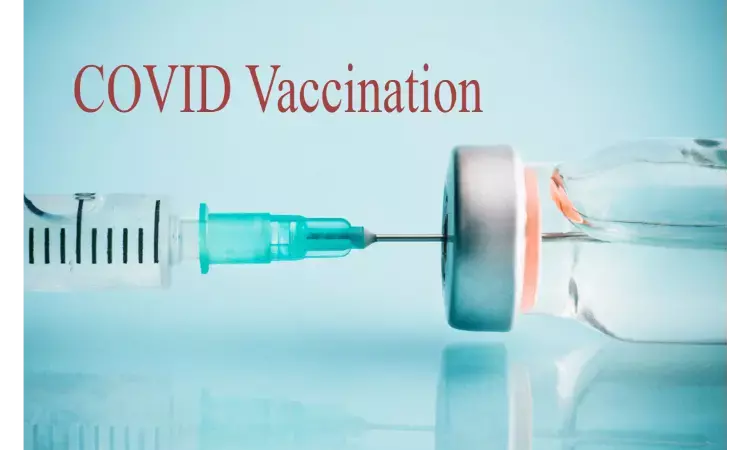- Home
- Medical news & Guidelines
- Anesthesiology
- Cardiology and CTVS
- Critical Care
- Dentistry
- Dermatology
- Diabetes and Endocrinology
- ENT
- Gastroenterology
- Medicine
- Nephrology
- Neurology
- Obstretics-Gynaecology
- Oncology
- Ophthalmology
- Orthopaedics
- Pediatrics-Neonatology
- Psychiatry
- Pulmonology
- Radiology
- Surgery
- Urology
- Laboratory Medicine
- Diet
- Nursing
- Paramedical
- Physiotherapy
- Health news
- Fact Check
- Bone Health Fact Check
- Brain Health Fact Check
- Cancer Related Fact Check
- Child Care Fact Check
- Dental and oral health fact check
- Diabetes and metabolic health fact check
- Diet and Nutrition Fact Check
- Eye and ENT Care Fact Check
- Fitness fact check
- Gut health fact check
- Heart health fact check
- Kidney health fact check
- Medical education fact check
- Men's health fact check
- Respiratory fact check
- Skin and hair care fact check
- Vaccine and Immunization fact check
- Women's health fact check
- AYUSH
- State News
- Andaman and Nicobar Islands
- Andhra Pradesh
- Arunachal Pradesh
- Assam
- Bihar
- Chandigarh
- Chattisgarh
- Dadra and Nagar Haveli
- Daman and Diu
- Delhi
- Goa
- Gujarat
- Haryana
- Himachal Pradesh
- Jammu & Kashmir
- Jharkhand
- Karnataka
- Kerala
- Ladakh
- Lakshadweep
- Madhya Pradesh
- Maharashtra
- Manipur
- Meghalaya
- Mizoram
- Nagaland
- Odisha
- Puducherry
- Punjab
- Rajasthan
- Sikkim
- Tamil Nadu
- Telangana
- Tripura
- Uttar Pradesh
- Uttrakhand
- West Bengal
- Medical Education
- Industry
Johnson & Johnson COVID-19 vaccine may lead to Guillain-Barre syndrome, FDA to issue warning

USA: Rare cases of Guillain-Barre syndrome (GBS) have been reported following vaccination with Johnson & Johnson's COVID-19 vaccine, most of which occurred within 42 days of the vaccination.
Based on which, the US Food and Drug Administration (FDA) may issue a warning that the Johnson & Johnson's COVID-19 vaccine may trigger GBS in a small number of people, according to the agency report.
While chancces of GBS occurrence is very low, the company has updated its COVID-19 Vaccine Factsheet including important information of these rare cases and on the signs and symptoms of Guillain-Barré syndrome. Updates with this new information will be implemented in other regions of the world according to local regulatory procedures.
"The safety and well-being of the people who use our products is our number one priority," the company said in a statement.
The company has shared any adverse event report about individuals receiving Johnson & Johnson's single-shot COVID-19 vaccine, as well as our own assessment of the report with the European Medicines Agency, the U.S. Food and Drug Administration, the World Health Organization and other health authorities around the world where our vaccine is authorized.
"We strongly support raising awareness of the signs and symptoms of rare events to ensure they can be quickly identified and effectively treated," they wrote.
Evidence has demonstrated that Johnson & Johnson's single-shot COVID-19 vaccine offers protection against COVID-19 disease and prevents hospitalization and death, including in countries where viral variants are highly prevalent. A single-shot vaccine that provides this level of protection represents an important tool in the global fight against COVID-19, as we strive to help end this deadly pandemic.
"Although the available evidence suggests an association between the Janssen vaccine and increased risk of GBS, it is insufficient to establish a causal relationship," the FDA said in a statement. "Importantly, the FDA has evaluated the available information for the Janssen COVID-19 Vaccine and continues to find the known and potential benefits clearly outweigh the known and potential risks."
About Guillain-Barré syndrome
GBS is an acquired demyelinating polyneuropathy that often begins in the lower extremities and ascends over time with loss of reflexes, causing muscle weakness, or in the most severe cases, paralysis. Some cases start a few days or weeks after respiratory or gastrointestinal viral infection. Often, GBS is reversible.
Dr Kamal Kant Kohli-MBBS, DTCD- a chest specialist with more than 30 years of practice and a flair for writing clinical articles, Dr Kamal Kant Kohli joined Medical Dialogues as a Chief Editor of Medical News. Besides writing articles, as an editor, he proofreads and verifies all the medical content published on Medical Dialogues including those coming from journals, studies,medical conferences,guidelines etc. Email: drkohli@medicaldialogues.in. Contact no. 011-43720751


